Toyota Hilux EV by 2030: How the heavy hitter of the ute market plans to take on China
An all-electric Toyota Hilux could be in dealerships by the end of the decade.
Toyota says an engineering trial of a Hilux EV with mining giant BHP could pave the way for a production program designed to broaden the appeal of the brand’s top selling model – and take the electric car fight to China.
Importantly, Toyota has now taken development of an EV ute wholly in-house rather than relying on third parties as it had previously.
READ MORE: Advantage Toyota? Electric Toyota HiLux a big step closer as BYD and Kia take an EV ute breather
READ MORE: BYD Shark 6 vs Ford Ranger: PHEV takes on diesel
READ MORE: Toyota takes next step to hydrogen Hilux, LandCruiser in deal with BMW
READ MORE: BYD Shark 6 priced from $57,900, undercutting Hilux and Ranger
READ MORE: Kia Tasman eyes hybrid ute option, but EV dual-cab a no-show for now
READ MORE: Are diesel’s days numbered? All-new Mitsubishi Triton and Nissan Navara to score plug-in hybrid petrol powertrains as Toyota RAV4 Hybrid outsells HiLux and Ford Ranger
The one-off electric Hilux prototype gives an insight into how fast the EV ecosystem is evolving for the nation’s biggest car brand – and how increasingly important electric propulsion is becoming for Toyota.
Speaking at the launch of the all-new Prado 250-Series – which will spawn an electrified variant by 2030 – Toyota Australia sales, marketing and franchise operations vice president Sean Hanley says the company hoped to make a battery electric (BEV) Hilux a reality.
“Within the next five years the BEV HiLux has potential [to be sold in Toyota dealerships],” he said.
“But it depends on how we go with the trial and the prototype and capability and performance and all the things – performance, quality, reliability – all the things Toyota will go through before they certify any vehicle for public sale.
“Eventually, in the fullness of time, of course we see this having a broad use.”
Hanley confirmed the trial Hilux was all-wheel drive, implying it uses two electric motors to drive all four wheels.
He was careful not to refer to it as “four-wheel drive”, with Toyota reserving that term for its off-roaders that use a dual-range transfer case for more extreme rough road capability.
But one thing is certain: Toyota is serious about delivering an EV Hilux that does what buyers expect of a Hilux.
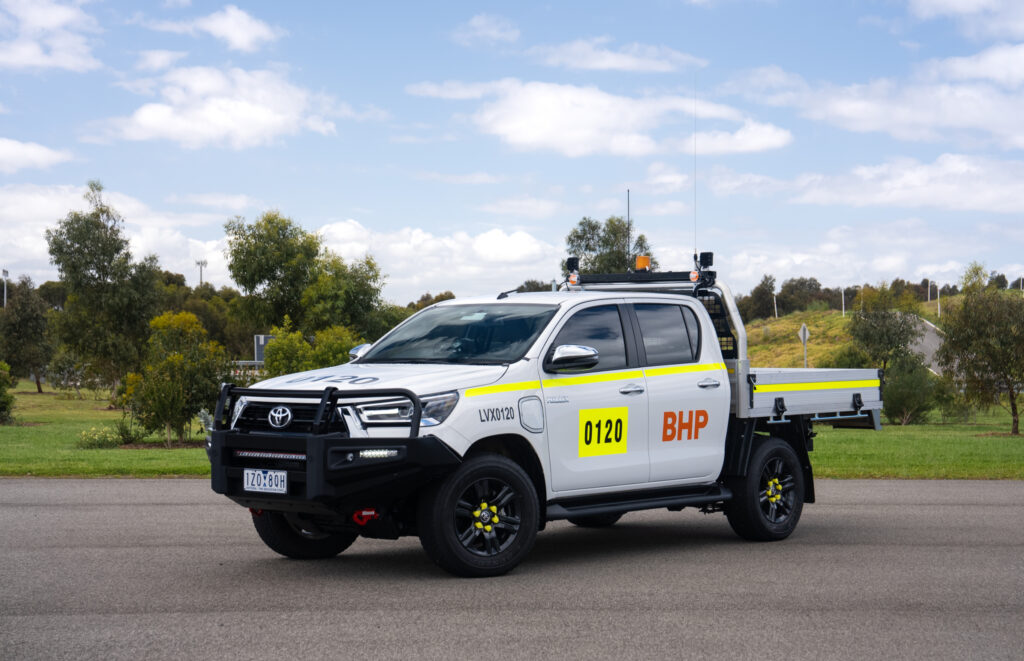
In announcing the EV Hilux trial with BHP earlier this month Toyota said “we want to make sure we do it right”, essentially emphasising that it would not rush a car to market but instead ensure it lived up to the brand’s expectations, including durability and reliability.
Given the potential appeal to fleet buyers and government departments – each of which is keen to reduce their environmental impact – Toyota is understandably adamant it will deliver on substance rather than just ticking the eco credentials box.
The EV Hilux has also meant an about-face for Toyota Australia in its development of electric utes.
The company has “paused” development of the LandCruiser 70-Series EV.
In 2021 the company announced a “small scale trial” – also with BHP – of the rugged 70-Series LandCruiser, saying it was working towards a production model.
But that’s now been shelved, at least temporarily.
“The LC70 BEV project has been paused,” said Hanley. “We have reprioritised our resources towards the Hilux electric BEV vehicle. From a resource prioritisation point of view it makes better sense at a global level to look at Hilux [to go EV].”
Whereas that LC70 EV project was being done in conjunction with conversions company VivoPower, the Hilux EV is being developed in-house by Toyota.
The relationship with Vivopower, revealed as a minimum five-year deal in June 2021, was ended very quietly in October 2022.
That’s indicative of changing internal priorities and how serious Toyota is about ensuring an EV project lives up to the brand’s promises.
But it could also give Toyota more flexibility moving forward.
The 2.8-litre four-cylinder turbo diesel is used across a wide range of 4WDs and commercial vehicles, including the Fortuner, Prado, Hilux, Hiace and LandCruiser 70-Series.
If Toyota can engineer an electric drivetrain for the Hilux it could pave the way to utilise that system across multiple models.
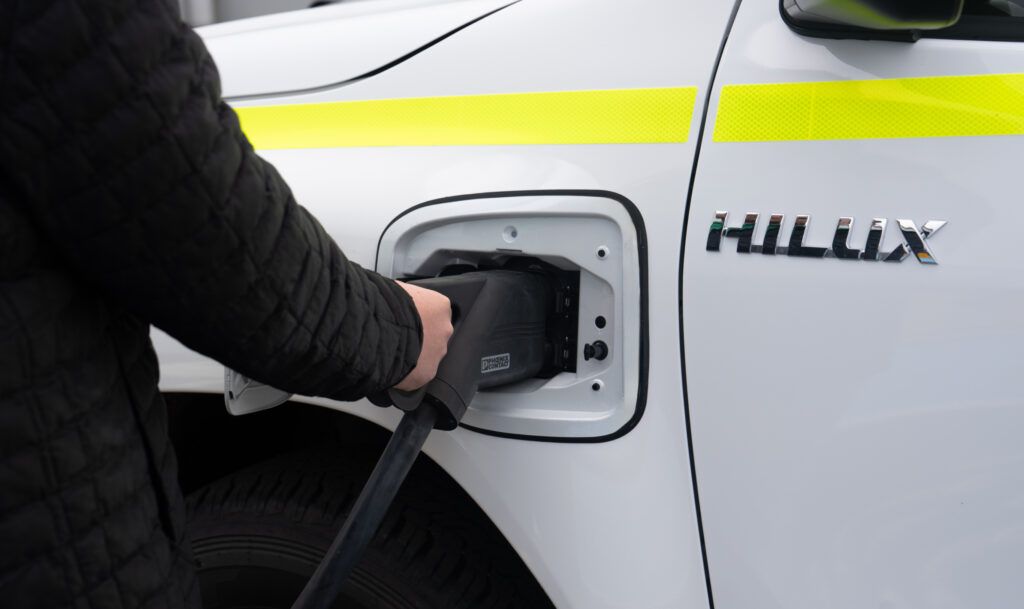
While the growth in EV sales has slowed dramatically throughout 2024 there are still pockets of interest and a lot of activity bubbling away, predominantly from China.
More than a dozen new brands are on the way to Australia – some recently arrived – which in itself promises to pump up EV interest.
And there’s also plenty of interested brewing for electrified utes, something recently kickstarted with the BYD Shark 6, the first plug-in hybrid EV (PHEV) ute in the market.
Ford will next year launch a plug-in hybrid version of the Ranger and GWM is also planning a PHEV version of its Cannon Alpha.
There are also electric utes coming, starting in February with the LDV eTerron 9.
Little wonder Toyota is keen to protect its patch.
The Hilux accounts for about one in four utes sold in Australia.

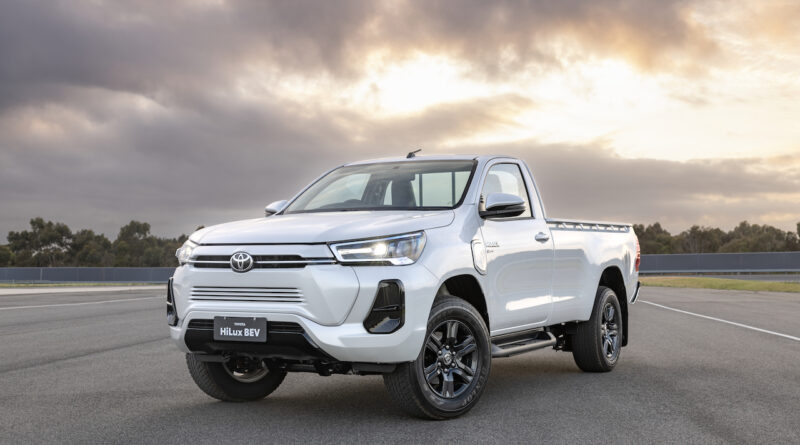
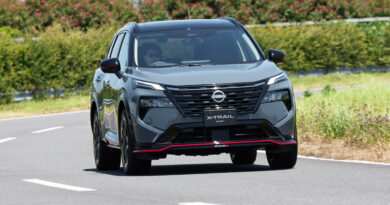
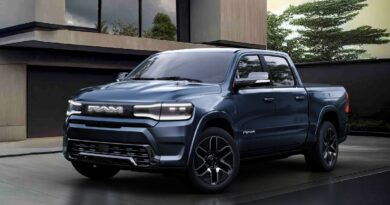
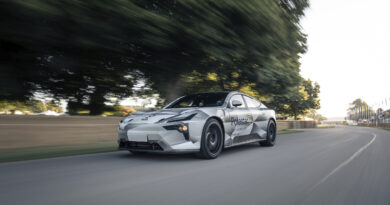
By the end of the decade, perhaps… No rush then? Should coincide with the next announcement on the imminent introduction of their solid state battery…